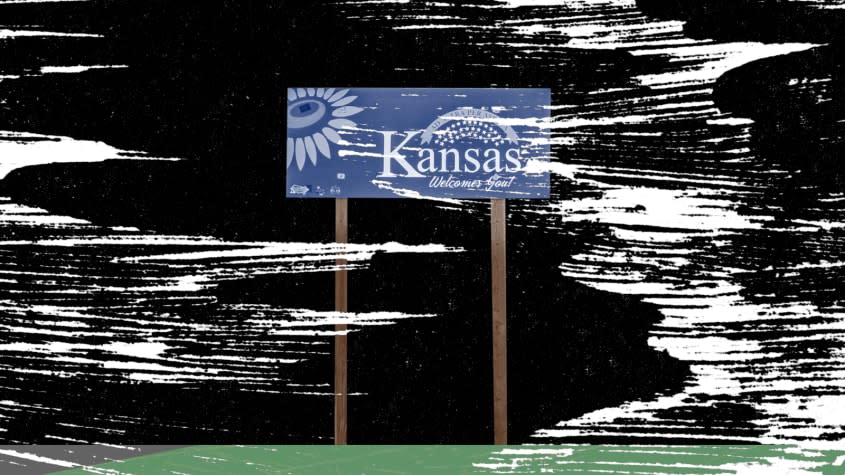Climate change is coming for the red states — but will it matter?

Extreme weather doesn't really bother me. I've lived in Kansas most of my life, have witnessed tornadoes and flooding, love nothing more than a good gullywasher rain storm. You respect the danger of such events, but you also get used to them. It's part of the landscape here, as familiar as grain silos.
Wednesday felt different.
Fierce windstorms battered my state throughout the day, starting large-scale wildfires, blowing off roofs, knocking out power to tens of thousands of people, and generating images out of a disaster movie. The late part of the day brought tornado warnings and severe thunderstorms. We hunkered down. And for most of the day I felt uneasy — not just because of the power and size of the storms, but because of the timing: We were getting May weather in December.
Climate change has come to my red state. (I know that it's difficult to attribute any one weather event to warming, but c'mon: The high temperatures here were in the 70s on Wednesday.) And it's not just mine: Kansas windstorms came hot on the heels of last weekend's deadly tornadoes that battered Kentucky, Arkansas, Tennessee, Missouri, and Illinois. With the exception of the last, these are all states that vote reliably for Republicans and side with candidates who at best treat global warming a secondary concern to sustaining a carbon-fueled economy — or at worst deride it as a "hoax."
But while their politicians might mock a "Green New Deal," GOP-voting states won't be able to avoid the pain of climate change. Until recently, those of us who live in "flyover country" have largely avoided the kind of singular, in-your-face events that plague coastal regions — the drought-fueled wildfires that scorched Oregon and California this last summer, the red tides and flooding that afflict Florida, the massive storms like Hurricane Ida that battered Louisiana before unleashing tornadoes and flash floods in Maryland, New Jersey, and New York in September. Getting tornadoes in December, however, is pretty unusual for the interior states.
Will that change any minds? If we've learned anything from the COVID-19 pandemic, it's that emergencies no longer bring us together — instead, they seem to divide us more bitterly than before. So it's likely many GOP voters in Kansas, Kentucky, and elsewhere will look at what's happened in the last week and decide to stick with their conservative climate politics anyway.
There is another possibility, though. Kansas has always been reliably Republican, but in 1931, a severe drought hit the state, which was already groaning under the Great Depression. It was the start of a decade-long Dust Bowl that created misery even worse than what we saw Wednesday. The next year Kansas gave its Electoral College votes to one Franklin D. Roosevelt.
You may also like
Workers at factory destroyed by tornado say they were threatened with firing if they left
5 cartoons about Russia's looming invasion of Ukraine
Let's pre-emptively stop pretending the metaverse is impressive

